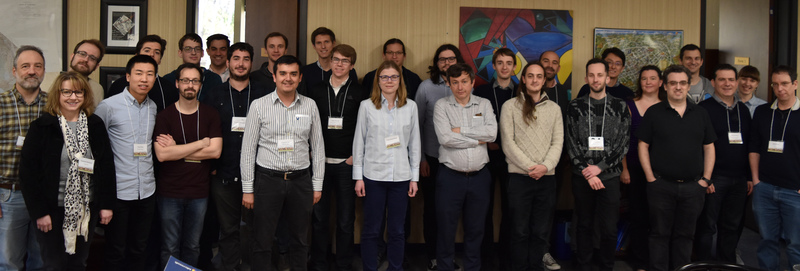Quantum algorithms for analysis of public-key crypto
February 4 to February 8, 2019
at the
American Institute of Mathematics,
San Jose, California
organized by
Daniel J. Bernstein,
Dan Boneh,
Tanja Lange,
and Michele Mosca
Original Announcement
This workshop will be devoted to
developing and analyzing quantum algorithms to attack public-key
cryptosystems. It is known that systems based on factorization of
integers and discrete logarithms will be broken by quantum computers
in polynomial time. Other systems, typically based on coding theory,
hash functions, isogenies, lattices, or multivariate systems of
equations, are considered secure against quantum attacks, meaning that
the security scales at least super-polynomially and ideally
exponentially with the system parameters. However, the exact security
is largely unknown and there is a lack of exchange between researchers
in post-quantum cryptography and those in quantum algorithms.
The aim of this workshop is to establish a more intensive
collaboration between mathematicians working on designing and
analyzing public-key cryptosystems and computer scientists working on
quantum algorithms. Bringing together this expertise is essential to
ensure that current proposals in post-quantum cryptography, an area
working on alternatives to cryptography based on factorization and
discrete logarithms with the aim to find algorithms that withstand
attacks by quantum computers, actually get analyzed with the full
power of both fields.
The main topics for the workshop are
- Exact security of ECC and RSA under quantum attacks
- Quantum algorithms for generic post-quantum systems
- Quantum algorithms for post-quantum systems with extra structure
Material from the workshop
A list of participants.
The workshop schedule.
A report on the workshop activities.
A list of open problems.
Papers arising from the workshop:

